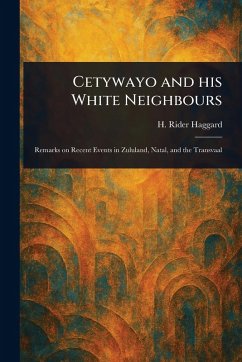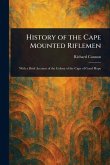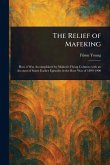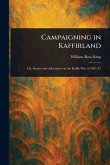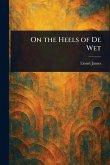H. Rider Haggard, renowned author of adventure tales, offers a compelling historical analysis in "Cetywayo and his White Neighbours: Remarks on Recent Events in Zululand, Natal, and the Transvaal." This meticulously prepared edition delves into the complex relationships between Cetshwayo, the Zulu king, and the white settlers in South Africa during a pivotal period. Haggard provides firsthand insights into the events leading up to and surrounding the Zulu War, offering a nuanced perspective on the political landscape of Zululand, Natal, and the Transvaal. Explore the historical context of KwaZulu-Natal from 1843 to 1893, examining the clashes and negotiations that shaped the region's destiny. This volume is essential reading for anyone interested in South African history, military history, and biographical accounts of key historical figures. It provides valuable insight into a tumultuous era defined by conflict and cultural interaction. This work has been selected by scholars as being culturally important, and is part of the knowledge base of civilization as we know it. This work is in the public domain in the United States of America, and possibly other nations. Within the United States, you may freely copy and distribute this work, as no entity (individual or corporate) has a copyright on the body of the work. Scholars believe, and we concur, that this work is important enough to be preserved, reproduced, and made generally available to the public. We appreciate your support of the preservation process, and thank you for being an important part of keeping this knowledge alive and relevant.
Bitte wählen Sie Ihr Anliegen aus.
Rechnungen
Retourenschein anfordern
Bestellstatus
Storno

